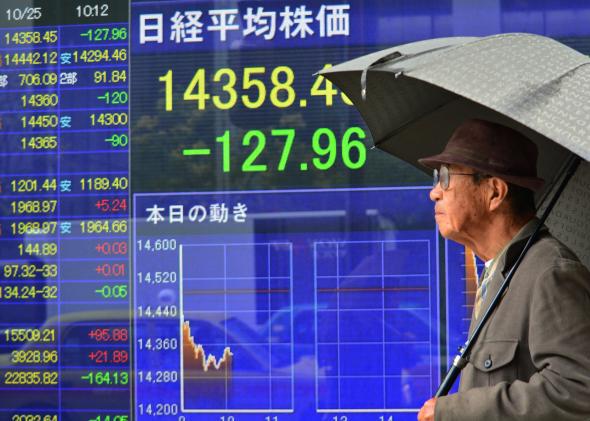This has been a great year for American stocks, with the S&P 500 index up 29 percent on the year (32 percent if you reinvested your dividends), but we’re still laggards compared to the top No. 1 stock market index of the year—the Nikkei 225.
Japan’s main stock market is up a staggering 57 percent this year. As you can see, that primarily reflects an enormous rally in the first four and a half months of the year (and if you look back you’ll see it in November and December of last year) that was followed by a pretty substantial crash. Back in late May and early June I recall that a lot of people were ready to pronounce the whole thing a bubble, but then Japan clawed its way all the way back and more in the second half of the year.
The credit of course belongs to monetary policy hero Shinzo Abe whose campaign to save Japan from economic stagnation appears to be working (see John Aziz for a more thorough overview).
You probably think you don’t care about the Japanese stock market, but it’s actually an incredibly important story. The reason is that the Nikkei’s meteoric rise is the best evidence we have that monetary policy is still potent at the zero bound. It is completely true, as the skeptics will note, that the real economy in Japan has not improved nearly as rapidly as the stock market. But this is just how the world works. Any real economy is full of frictions that require things to change at only a moderate pace compared to the lightning speed with which a stock market can move. The point of the Nikkei’s drastic upward shift is that it reflects a remarkable upward revision in forward-looking expectations about Japan—a revision that’s all the more remarkable because Japan’s shrinking and aging population remain a major anti-growth fundamental that the Bank of Japan can’t do anything about.
At any rate, you’ll sometimes hear it said that the success of Abenomics is merely a form of currency depreciation. But here’s an amazing fact—even though the yen really has depreciated massively against the dollar, the Nikkei is nonetheless up 29 percent this year in dollar-denominated terms.
Monetary stimulus doesn’t just boost net exports and beggar thy neighbors, it increases domestic investment and demand.
